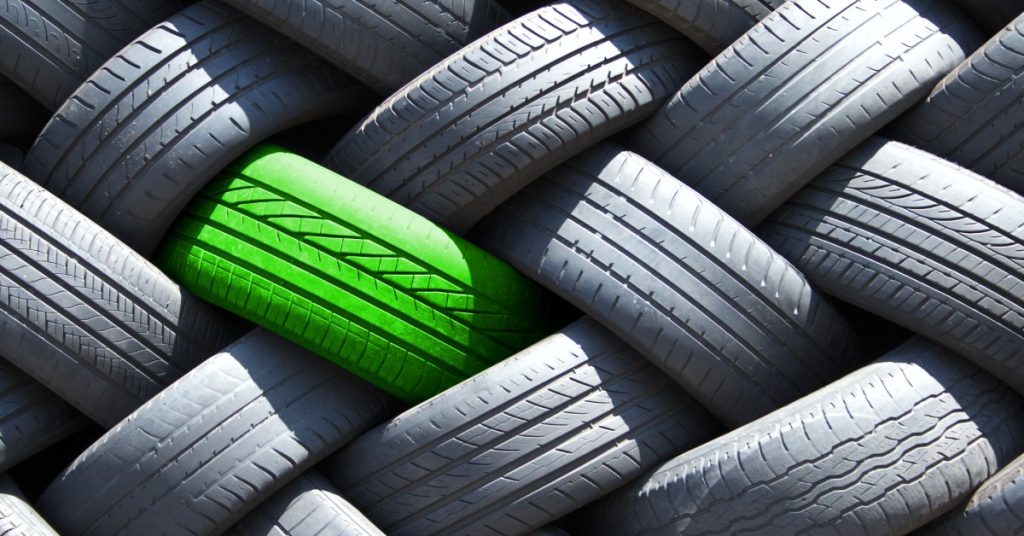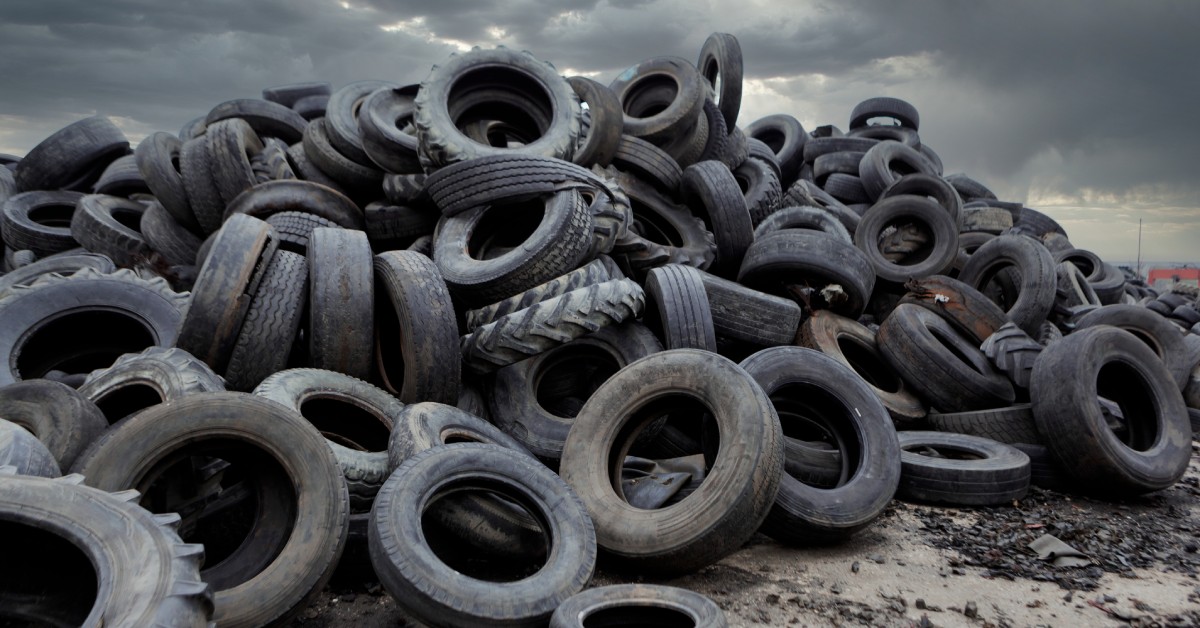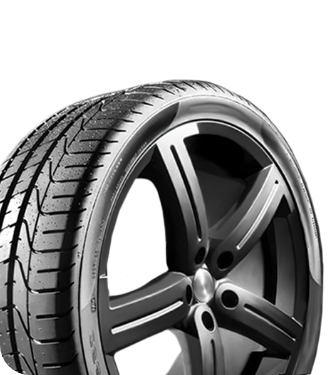

How To Recycle Tires in an Eco-Friendly Way
Misc. |Your car tires constantly work hard to keep you safe while driving. From family road trips to daily commutes, they get you where you need to go safely. But once the tires start to lose their treads and need to be replaced, what should you do?
Most drivers simply leave their old tires at a service center and drive away, but there are alternatives. One of the best alternatives to dumping your tires is to learn how to recycle tires in an eco-friendly way that protects the environment and helps you potentially save money.
Why Tire Recycling Matters for Car Owners
Traditional tire disposal creates significant environmental challenges that directly affect the communities where we live and drive. Tires take up an enormous amount of space in landfills and can trap methane gas, which can then increase fire hazards in the area. Worse yet, improperly disposed of tires become breeding grounds for mosquitoes and other pests, posing public health risks.
Americans produce approximately 280 million scrap tires each year, with each tire taking at least 50 years to decompose naturally. For the average car owner, this adds up to a significant environmental impact over a vehicle’s lifetime.
Understanding Different Types of Tire Recycling
Tires can be disposed of in a multitude of ways, many of which give them a second life. Each of these methods helps reduce waste and benefits the environment. Understanding these recycling processes can empower car owners to make informed decisions about how to dispose of their used tires responsibly.
Mechanical Recycling
Mechanical recycling represents the most widely available option for most car owners. This process involves shredding whole tires into smaller pieces, followed by separating the rubber from steel belts and textile fibers through magnetic and screening processes. The resulting rubber crumb serves multiple purposes, from athletic field surfaces to rubberized asphalt for road construction.
Many tire retailers and automotive service centers use mechanical recycling partners to process customer tires. This method works well for standard passenger vehicle tires and offers convenient drop-off options that fit easily into your daily schedule.

Retreading
Retreading gives viable tire casings a second life by applying new tread rubber to the existing tire body. While more common in commercial trucking, some passenger vehicle tires qualify for retreading when the casing remains structurally sound.
This process reduces the need for new tire manufacturing while providing cost-effective tire options. Car owners with vehicles that qualify for retreaded tires can save 30-50% compared to new tire purchases while supporting environmental sustainability.
Energy Recovery
Energy recovery processes convert scrap tires into fuel sources for cement kilns, paper mills, and electric utilities. Tires contain significant energy content; each tire produces approximately 15,000 BTUs per pound, making them a valuable alternative fuel source.
While you won’t directly participate in energy recovery as a car owner, choosing recycling programs that include this option ensures your old tires contribute to reduced fossil fuel consumption in industrial applications.
Finding Tire Recycling Options Near You
Recycling options can be a hassle depending on where you live. By finding reliable tire recycling options near you, you can ensure that your old tires are repurposed efficiently, whether through material recycling or energy recovery methods.
Tire Retailers and Service Centers
Most tire retailers accept old tires when you purchase a new set, and can take care of the disposal fees on top of that. This is the most convenient option for busy commuters who want hassle-free tire replacement and recycling. When you schedule your tire replacement, ask the tire shop about their recycling options and if they work with recycling partners to ensure your old tires receive the proper handling.
Local tire shops usually provide more personalized services compared to major chains. Building relationships with one of these local businesses can lead to better service and potentially lower costs for future tire needs.
Municipal Recycling Programs
Many cities and communities operate tire recycling programs during special collection events or at permanent drop-off locations. These programs usually accept tires for free, which makes them an exceptional option for car owners who have multiple old tires they need to dispose of.
Check your local government website or call the waste management department to learn about upcoming tire collection events. Some communities hold quarterly or semi-annual events that coincide with other household hazardous waste collections.
Private Recycling Companies
Another option for recycling is working with specialized tire recycling companies that accept the tires directly from you, but they may charge a processing fee. These businesses often provide the most comprehensive recycling services and can handle unusual tire types that other facilities won’t accept.

Preparing Your Tires for Recycling
Recycling your old tires is an essential step in reducing environmental waste and promoting sustainability. Before taking your tires to a recycling facility, it’s important to ensure they are properly prepared.
Inspection and Cleaning
Before recycling, inspect your tires for any unusual materials or modifications that might affect processing. Remove any wheel weights, valve stems, or aftermarket additions that weren’t part of the original tire construction.
Clean excessive mud or debris from tire treads and sidewalls. While recycling facilities can handle normal road dirt, removing any heavy buildup helps processing equipment operate more efficiently and may reduce any cleaning fees.
Proper Storage Before Drop-Off
Store your old tires in a dry location away from direct sunlight. Stack them properly to prevent more damage and to save space. Avoid storing tires outdoors where they might collect water and become mosquito breeding sites.
If you have multiple tires, keep a record of the tire sizes and types. This information helps recycling facilities sort and process materials more efficiently, potentially qualifying you for better pricing or service.
Cost Considerations and Potential Savings
Tire recycling often costs between $1 and $5 per tire, depending on their size and the local market conditions. Many tire retailers include these fees in their installation charges, making the cost nearly invisible to consumers who replace tires during regular service visits.
Municipal collection events often provide free tire recycling for residents. Store your old tires safely until you attend the event. Some communities also offer free drop-off locations year-round for residents with proper identification.
Driving Forward With Responsible Tire Recycling
Learning how to recycle your tires in an eco-friendly way represents a simple yet impactful solution to reduce your environmental footprint and maintain your vehicle. Now that you understand your options, you can ensure your old tires don’t go to waste in a landfill, but instead can contribute to new products and energy sources.
Start your tire journey with RNR Tire Express to find the perfect sustainable options for your vehicle. Visit our tire shop in Corpus Christi to learn more about your options with one of our expert team members. Don’t just prioritize recycling your tires; start with eco-friendly possibilities today.





